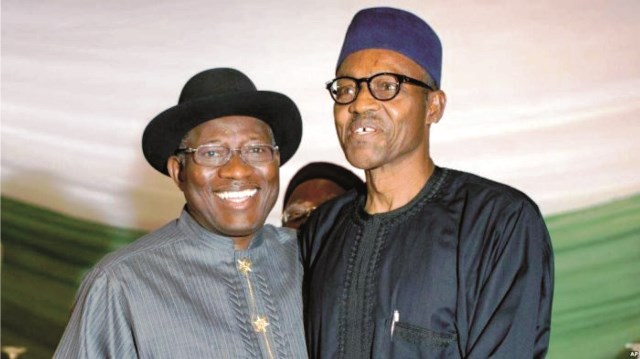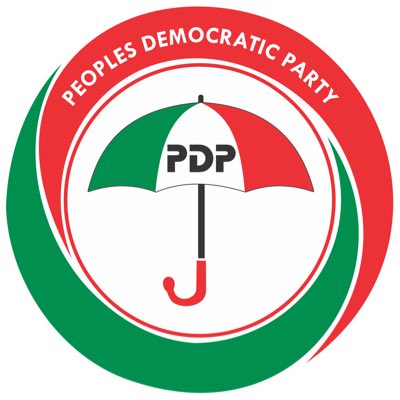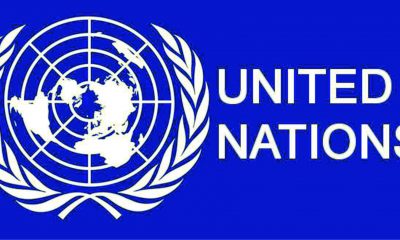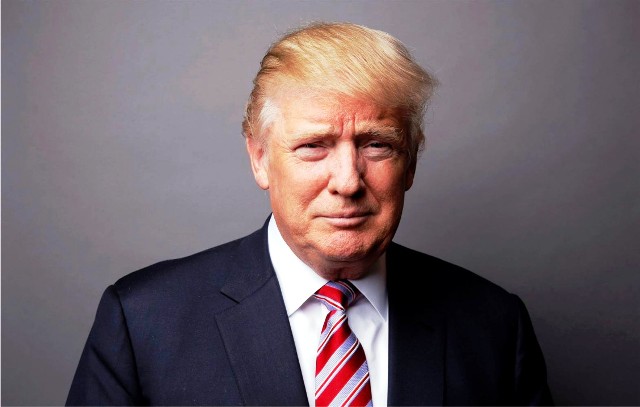Politics
2019 Polls: The Allegations And Realities

Accusations and counter-accusations after an election have no doubt become the hallmark of Nigerian politics. In most cases, the loser does more of the accusations, while the winner eulogizes the process leading to his/her success, even when there are glaring cases of misnomers.
In fact, but for President Goodluck Jonathan, who conceded defeat in 2015 to Muhammadu Buhari, it is difficult to name any other person who lost an election, organised by the country’s electoral umpire and accepted the results in Nigeria. It has become normal, so much that even when there is good reason for the loser to feel cheated and hence aggrieved, he is widely seen as following the band wagon.
Unfortunately, this stance has become a major Achilles’ heel of Nigerian politics, one that has, election after election, either bemusedly present-ed those who say all is well in the face of clear unwell as the real destroyers of the country’s yearnings for democracy, or made the losers (who are tagged mere complainers) as troublemakers.
Ironically, this aspect of the country’s politics is the part that makes each subsequent election stand out on its own. In the history of Nigerian politics, for instance, critics will always point to 2003 as the period when politics of gunrunning found its way into Nigerian politics. Since then, the situation has only been as good or bad as the focus of the sitting president, and in the interpretation of the interest of the one talking.
Worthy of note is the fact that at each point, most of those who dish out these bitter experiences, or receive same, have either been direct or indirect key players when it started, or supported it as the norm they came into play, even when they may have known at some point that it wasn’t right for the polity.
The difference between political gunrunning when it started and now is that while in the beginning the key players were civilians whose briefs was to protect the interest of their principals, currently those commandeering with the aid of the gun are trained military personnel who have sworn to protect the interests of the people.
The result is that while those who are on the receiving end of the alleged excesses of the military, which, like in the Abonnema experience of February 23, 2019 Presidential and National Assembly elections, allegedly claimed over 50 lives at the end of the day, those who it has favoured see it as their time to shine. This is all there is to the allegations and counter allegations over the 2019 elections.
In the midst of all this, however, there is the need to think out of the box, if one would truly want to be seen as being patriotic, as most of the key players claim to be, about what Nigeria has been thus far as a Republic, and what it should be in terms of development.
When viewed from the perspectives of the realities as they emerge, which come up almost as frequent as the brains of those who concoct their works, and placed side-by-side with what the leadership claims to be focused on for the good of society, it becomes very easy to clearly separate the real allegations, the reality of it, and the ideality of the situation which everybody seem to lay claim to.
What could perhaps be regarded as one of the first allegations of the 2019 Nigeria’s general elections occurred in Rivers State in Ikwerre and Emohua Local Government Areas (LGAs): The Returning Officers of both LGAs alleged military invasion, intimidation, molestation and carting away of collation materials, as the case may be, hence there was no result to declare at the LGA collation centers.
The reality of the allegations is that it does not change the fact that from the point of the polling units, where results are first declared, up to the Wards level, agents of political parties and virtually all concerned and their cronies have direct access to the real figures of each result.
On the other hand, ideally, whether the results were delivered at the LGA Collation Centers or not, it will be easy to get the results in bits from the Units or Wards and still arrive at the correct result, in perhaps slightly adjustable time, if the electoral umpire had worked out enough contingency plans as backups, and also earned the trust of the voters.
Even when such contingencies may not have been foreseen, if after the killings in Abonnema and the collation disruptions in other areas, the Independent National Electoral Commission (INEC) could ignore them and announce the Presidential and National Assembly elections, what else could stop elections in areas where voting had successfully taken place in a peaceful atmosphere, counted at the Units and Wards, only to be disrupted at the LGA?
But for that it shows the reality that INEC is less concerned (or interested) about getting genuine election results, and so places more attention on getting any result from persons other than the ones they officially appointed to get the results from, the Mahmood Yakubu-led INEC can hardly have genuine reason to let the one characterised by fatalities go, and stamp its feet on a better option.
In its second interim report on the Governor-ship and State House of Assembly elections of March 9, 2019, the Nigeria Bar Association (NBA) said in part that, “The political parties had a field day inducing voters with money, food items, soaps and various other items to vote for their partie’s candidates. These acts of inducement right before security agents within the voting precincts have the propensity to destroy the citizens’ confidence in the entire election process.
“There were several reports of electoral violence from all over the country. Party thugs and hoodlums had a field day invading voting centers to snatch polling materials, destroy voting materials, harass, molest and intimidate voters and, in some instances, INEC officials”.
The report, credited to the Chairman of the NBA Election Working Group, Afam Asigwe, stated that, “Surprising in most places where these dreadful acts were recorded or reported, security agents were either complicit or indifferent”.
The Chief Observer of the European Union Observation Mission to Nigeria, Maria Arena, summed up when she said,” Observers, includ-ing EU observers, were denied access to collation centres in Rivers, apparently by military personnel. This lack of access for observers compromises transpa-rency and trust in the process.
“In Rivers, INEC suspended until further notice the elections due to violence in polling units and collation centers, staff being taken hostage and election materials, including results sheets, seized or destroyed by unauthorised persons.
“There is no doubt that the electoral process there was severely compro-mised.”
While these allegations have not been able to encourage INEC and the Federal Government to take deliberate steps in ensuring that the military is only involved in securing the environment for peaceful elections, it only proves the reality that as far as these elections are concerned, the military has been given the power to do everything they deem fit, including taking as many lives as they can, even in a non-war situation.
Another key reality is the phrase, “people dressed in Army uniforms”, used to describe Army personnel who are blamed for carrying out all the stated allegations before and during the 2019 elections. While these allegations are sometimes backed by video footages, the military seem to be unperturbed, as it seems with the Federal Government too. With each subsequent denial of the allegations, it seems to be business as usual.
In all of these (and many more), all key players claim ideality: they want the people to see them as saints; people who are doing everything for the interest of the country; that they are the best thing to happen to the people, even when they do not have the least regard for the people, by their actions.
Leadership seem to forget in a hurry that by its actions and inactions, it has done a pretty good job doing in a more grievous manner what it had professed against just about four years ago. The APC-led Government seems only to be bent on improving on the same things it allegedly fought against, and for which it got the people’s Presidential mandate in 2015.
Soibi Max-Alalibo
Politics
PDP Crisis: BoT Urges Immediate Swearing-In Of Ude-Okoye As National Secretary

The Board of Trustees (BoT) of the Peoples Democratic Party (PDP) has officially transmitted the resolution of its emergency meeting held in Abuja on Wednesday to the party’s National Working Committee (NWC).
It also attached the communique of the meeting, the findings of the Saminu Turaki SAN-led fact-finding committee as well as copies of the Court Judgement/ orders with an instruction to the NWC to immediately swear in Sunday Ude-Okoye as substantive National Secretary.
This was sequel last Wednesday’s emergency meeting held at the Transcorp Hilton Hotel, Abuja.
This was contained in a memo from the BoT to the NWC, yesterday, barely 24 hours after the meeting.
The memo read in part, “The attention of the National Working Committee (NWC) is hereby drawn to the attached Legal Opinion of the BOT Committee led by Dr. Taninu Kabiru Turaki, SAN; and the Communique issued at the end of the Emergency BOT Meeting affirming Rt. Hon. S.K.E. Udeh Okoye as the substantive National Secretary of our Party.
“NWC is hereby invited to please. study the report and its recommendation for immediate implementation.”
The documents were stamped and received by the Office of the Deputy National Chairman (North), Amb. Umar Damagum’s office before he became Acting National Chairman.
An Enugu High Court had in a ruling affirmed Ude-Okoye’s appointment as National Secretary, and the decision was subsequently upheld on appeal.
However, Senator Samuel Anyanwu told a national daily that, “With all due respect, the BoT’s position is advisory.
“I have a valid stay of execution from the Court of Appeal. The substantive matter is still before the Supreme Court, the PDP as a law-abiding party should wait for the final decision of court and not rush into taking decisions that would become counterproductive.”
Politics
Reps Seek Life Imprisonment For Fake Drug Producers, Importers
The House of Representatives has urged the Attorney General of the Federation to propose harsher sanctions, including life imprisonment, for producers and importers of fake drugs into the country.
The resolution followed the adoption of a motion of urgent public importance, sponsored by an All Progressives Congress lawmaker, Tolani Shagaya, and read on the floor during yesterday’s plenary.
Highlighting the importance of the motion, Shagaya expressed concern over the alarming increase in the production, importation, and distribution of fake and substandard goods, drugs, food, and beverages across Nigeria.
According to him, this development poses significant threats to public health, national security, and the economic stability of the nation.
He added that the World Health Organisation (WHO) and the National Agency for Food and Drug Administration and Control (NAFDAC) have repeatedly warned that Nigeria is one of the most affected countries in the world by counterfeit medicines, contributing to thousands of avoidable deaths annually.
He said, “The House is aware that NAFDAC recently seized counterfeit food and pharmaceutical products worth over ?5 billion in a raid at the Cemetery Market in Aba, Abia State, highlighting the widespread nature of this menace.”
“The House is concerned that Nigeria suffers economic losses of approximately ?15 trillion annually due to counterfeit and substandard goods, as reported by the Standards Organization of Nigeria. The unchecked proliferation of fake products not only jeopardises consumer safety but also discourages genuine investment in the food and pharmaceutical industries.”
“The House is further concerned that despite existing regulations, weak enforcement mechanisms, corruption, and the absence of stringent penalties for offenders have emboldened perpetrators to continue endangering public health.”
“We recognise that the current legal framework does not provide sufficient deterrence, as offenders often return to the illicit trade due to lenient fines and bailable sentences, allowing them to operate with impunity.”
He further added that a national state of emergency is necessary to intensify enforcement efforts, strengthen regulatory institutions, and impose stricter sanctions on perpetrators.
Following overwhelming support for the motion by lawmakers, the House urged the Attorney General of the Federation to propose amendments to existing laws with a view to imposing stricter penalties.
These include, “life imprisonment for those involved in the production and importation of fake drugs and significant fines for businesses found guilty of dealing in counterfeit goods.”
The House also urged the Federal Government to strengthen the capacity of regulatory agencies, particularly NAFDAC, Standard Organisation of Nigeria, and the Nigerian Customs Service, by providing adequate funding, modern equipment, and advanced technology for effective surveillance, detection, and enforcement.
It further urged the Federal Government to establish a special task force comprising security agencies, regulatory bodies, and the judiciary to fast-track investigations and prosecutions of individuals and businesses involved in counterfeiting.
The House also directed its Committees on Health, Commerce, and Industry to conduct a comprehensive probe into the prevalence of counterfeit products and propose legislative measures to address regulatory gaps.
Politics
How Akande Lied Against Me Over Bola Ige’s Case – Ladoja
In a recent interview, Chief Akande also said Senator Ladoja entered a no case submission for the suspects accused of assassinating the ex-Attorney General of the Federation and Minister of Justice.
But the ex-governor has denied the allegation, saying old age has probably affected the memory of the former Osun State Governor to remember what happened during the period.
Senator Ladoja wondered why Chief Akande, who said he knew many things about the assassination that he would not disclose, did not tell the public what exactly surrounded the killing of the former AGF on December 23, 2001.
Senator Ladoja, next in the hierarchy to the Olubadan of Ibadan, said this when speaking with reporters in his Bodija residence in Ibadan.
Speaking in an interview with Edmund Obilo, Chief Akande suggested that Senator Ladoja might have important information about late Chief Ige’s killing.
He alleged that Chief Ige was killed by the government and described his death as a “state murder” — but never affirmed a specific person who committed the crime.
Chief Akande claimed that Senator Ladoja withdrew a case related to the murder that had initially been pursued by his predecessor, former Governor Lam Adesina.
“I was the chief security officer of Osun State at the time, not Oyo State. Lam Adesina was the chief security officer of Oyo State and he went to court and the governor that took over from him, Ladoja, withdrew the case from court. He might be able to tell you more, he might know more than I do know,” Chief Akande said.
“There are many things that die with people. I know Lam Adesina went to court over the matter, and I also know his successor, (Rashidi) Ladoja, withdrew the case. Ask Ladoja; he would know more about Bola Ige’s death”, he added.
The All Progressives Congress (APC) chieftain also expressed regret that ex-governor Adesina had confided in him about certain details he could no longer disclose.
Chief Akande noted that key figures, including the former Oyo state governor, who could have shed more light on the case, had passed away.
“Because there are many things you don’t want to tell the public. I don’t want to tell anybody. Now Bola Ige is dead, and Lam Adesina too is dead, so who will be my witness? Nobody,” he added.
Addressing journalists at his residence in Ibadan, Senator Ladoja described Chief Akande’s claims as false.
He said that the case was pursued up to the Supreme Court during his tenure, and denied ever having withdrawn any charges.
“I didn’t withdraw the case; my government didn’t withdraw any case. The case was even prosecuted till apex court, Chief Akande lied against me. This is not the first time people said he lied; someone like Baba Adebanjo even said he lied in his book.
“We are not all happy as a result of Chief Bola Ige’s death, and we are all concerned about his death. I was very close to Chief Bola Ige while alive”, he said.
In 2016, former President Muhammadu Buhari ordered that the investigation into the murder be reopened, but there has been little progress since.
-
Business5 days ago
REA, RESCOs Sign Agreement To Establish 23 Mini-grids
-
News3 days ago
MAN Warns Against Further Hike In Electricity Tariff
-
Sports3 days ago
W’Cup: Eagles Get Dates for Rwanda, Zimbabwe Qualifiers
-
News5 days ago
Telecom Operators Dismiss Talks With NLC On Tariff Hike
-
Politics5 days ago
How Akande Lied Against Me Over Bola Ige’s Case – Ladoja
-

 News3 days ago
News3 days agoWFP Votes $2.5bn To Fight Hunger, Malnutrition In Nigeria
-

 Editorial3 days ago
Editorial3 days agoHIV, Transiting From Donor Dependence
-
Rivers5 days ago
Police Confirm Vehicle Insurance Policy Enforcement In Rivers

